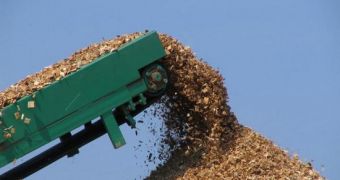Given the fact that, as a result of climate change, the global food and biofuels industries are set to enter a fierce competition for raw materials, provided that they both rely heavily on the use of feedstocks, efforts are being made to keep this from happening.
Therefore, in the aftermath of several individuals asking that the production of crop-based biofuels be significantly cut down, the French government agreed to invest money in research aimed at providing one branch of the transportation industry with a highly innovative energy source.
More precisely, high official in this country agreed to co-fund the so-called “ProBio3” project, which basically aims at taking straws and wood shaving, and using them to develop a new type of jet fuel.
Thus, the aircrafts of the future could move about with the help of materials that have so far been used as horse bedding.
This shift is expected to translate into an airline industry that both causes significantly less emissions to be released into the atmosphere, and uses fewer amounts of traditional fossil fuels.
As explained on RevModo, this is because the new type of biofuels that stands to be developed with the help of waste grasses could be successfully mixed 50/50 with jet fuel.
Carole Molina-Jouve, presently working with Toulouse’s National Institute of Applied Sciences, presents these scientific facts in a very straightforward manner and makes a case of how, “Tomorrow, planes will fly using agricultural and forest waste.”
Furthermore, “We already know how to set up a basic production line, but we must move towards an industrial line. We need to translate what is done in laboratories to the real environment while improving its profitability and efficiency.”
According to the same source, the French government is to invest €24.6 million ($32.1 million) in the “ProBio3” project, and research activities are expected to be carried out throughout the following eight years.

 14 DAY TRIAL //
14 DAY TRIAL //